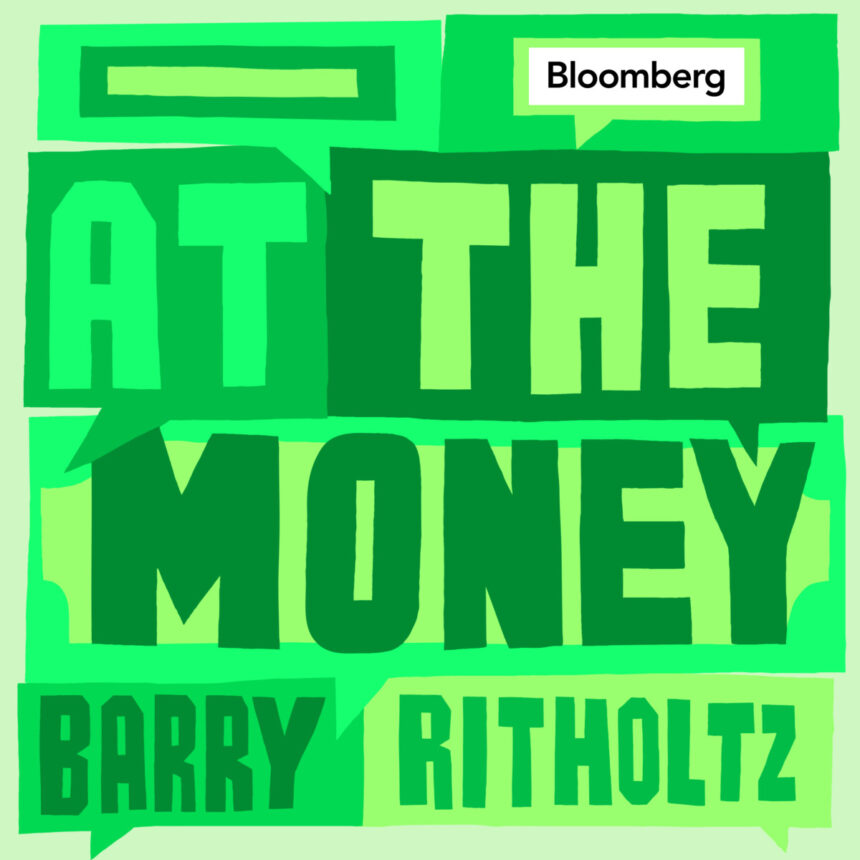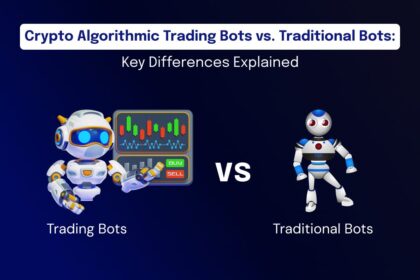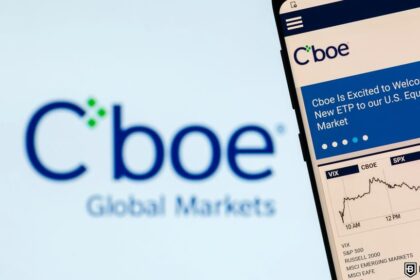At The Money: Buying into the Ownership Society (August 27, 2025)
Equity-based compensation has become a means of participating in the “Ownership Society.” You give up some cash salary in exchange for the potential to see enormous gains if your company IPOs.
Full transcript below.
~~~
About this week’s guest:
Joey Fishman is a Senior Advisor at Ritholtz Wealth Management (RWM), where he assists clients with managing their stock, options, and equity compensation.
For more info, see: Personal Bio
~~~
Find all of the previous At the Money episodes here, and in the MiB feed on Apple Podcasts, YouTube, Spotify, and Bloomberg. And find the entire musical playlist of all the songs I have used on At the Money on Spotify
TRANSCRIPT:
(Intro: All the other kids with the pumped-up kicks, You better run, better run, outrun my gun; All the other kids with the pumped-up kicks, You better run, better run faster than my bullet)
How would you like to become part of the ownership society? It’s complicated, with lots of moving parts, rules, regulations, and taxes. But if you do it right – and get a little lucky — there are potentially big gains to be had.
To help us unpack all of this and what it means for your compensation, let’s bring in Joey Fishman. He’s an expert in equity-based compensation in Bend, Oregon. He has clients from Seattle and Redmond down to San Francisco and Silicon Valley, and full disclosure, Joey is the equity compensation expert at Ritholtz Wealth Management and is also one of my partners.
So let’s start, Joey, from the employer perspective. What does a firm like RWM get out of equity compensation for its senior employees and partners?
Joey Fishman: It sets the tone from the beginning and incentives as long as their property aligned, it puts everybody in the right position to, to help push the firm forward and help succeed.
Barry Ritholtz: So let’s drill down to some of the most, um, important aspects of this. Obviously if you’re, you’re either offering stock options or any form of equity compensation, that’s gonna be less expensive than using cash. That’s obvious, but what about attracting talent, retaining talent, and then getting all the horses pulling in the right direction?
Joey Fishman: That’s a really good question and I think a lot of it depends on the individual industry with which you’re working in.
For years over the last, you know, run up to the bull market over the last 15 years, there was a huge demand for coders and people in the tech world. And so if you could fog a mirror, you were offered, you know, hundreds of thousands of, uh, incentive stock options to come join this or that tech company to help build them out.
In the banking world, you know, RSAs or restricted stock awards was a different form of equity that suited better that industry just because of the way which cash flows came in. And RSUs seem to be the better approach for the oil and gas industry. There is a lot of volatility in that market, but there’s also a lot of stability, and so RSUs tend to work really well in that environment.
Barry Ritholtz: You mentioned banking in the space we work in wealth management. It seems like it’s very much bifurcated. Some companies very much embrace it. Other firms don’t really pay much attention to it. What do you see in this space for equity-based compensation?
Joey Fishman: I mean, if you wanna keep your employees around, you’re gonna incentivize them accordingly. I mean, they gotta get paid.
Barry Ritholtz: Is that, is that why we seem to have sort of a prisoner exchange at, at the big wirehouses? They go from Merrill to Morgan to UBS to Goldman and back. They take a big cash check in front as opposed to a long-term backend equity version of this. I’m just, I never really thought about it that way, but that seems to be what happens in, in parts of the industry.
Joey Fishman: You hit the nail on the head. Exactly. So by allowing us to be share owners of the firm, there’s no incentive us, for us to be lured away by someone else offering us a huge check just to move for the next couple of years.
Barry Ritholtz: What about different employees at different levels of the companies? We have founders. Partners, employees, and for lack of a better word, probationary employees. What does this look like in all fields, not just wealth management?
Joey Fishman: Once you get to the executive level, the pay package changes. It may not just be NSOs or ISOs, they’re gonna add in what’s called PSUs or performance stock units. After you meet a predetermined threshold, that’s part of your agreement or a part of your contract. You’ll be granted X number of additional shares. They too have their own tax treatment.
We’re seeing now that it used to be more reckless, abandoning. We’re just gonna assign and grant you shares each year as part of your equity refresh. Now it’s a little bit more of. Performance stock unit compensation, where it’s put up or shut up, show us that you’re worth the compensation before we’re actually gonna be granted it to you.
Barry Ritholtz: Let’s talk about profit interest, which has been something that I’ve noticed a lot more of over the past five years. Hey, you’re joining a company with a billion-dollar valuation. If the company is sold for anything over that and you have a profit interest, you participate, but you don’t have to pay in, and there’s no initial tax penalty for this.
Tell us about profit interest.
Joey Fishman: Stock appreciation rights is maybe in line with what you’re discussing. There’s something also called phantom stock too. Phantom stock is, is not used that much anymore because the, the tax liability associated with it is so severe if you get caught on the wrong side.
But stock appreciation rights is more aligned with what you’re discussing here, which is. We’re not granting you or giving you shares per se, but what we’re doing is we’re going to give you whatever appreciation takes place between now and the next date. And let’s say we’re gonna give you a thousand shares now if it’s trading to 10 bucks a share, and if it increases to $15 a share, well, the net to you is the equivalent of $5,000 because we’ve, we’ve given you that stock appreciation right.
Barry Ritholtz: Let’s talk about winners versus losers. We, you mentioned the banking industry. We were talking about technology previously, you and I have talked about oil and gas.
How common or rare are the modest winners and how rare are the, you know, lottery tickets, like a Netflix or an Nvidia?
Joey Fishman: It is a really, really good thing to wrap your head around. So at the end of the day, it’s about 4% of stocks are responsible for the vast majority of market returns. So 4% of stocks; of that, roughly 80% of employees sell their shares immediately after they vest.
Barry Ritholtz: Really? That is shocking to me.
Joey Fishman: So think about like, think about what has to happen in order for you to, you know, hit it outta the park. You have to join early enough to get a meaningful amount of equity. You gotta stay long enough at least four years to invest all of your equity and like God willing, knock on wood, you’re getting equity refreshes each year as part of your bonus. You need to exercise at the right time to avoid, you know, tax traps. If it’s ISOs, it’s a AMT tax that you have to navigate around; if it’s NSOs, it’s ordinary income that has to be navigated with over time as more liquidity events or funding rounds happen. Your ownership stake is gonna be diluted, but hopefully the, the firm is getting more valuable.
And then finally, you have to wait until there’s an actual liquidity event. And if it’s a publicly traded firm or a firm that went IPO’d. It’s six months after that IPO, even if it’s fully vested, do you then have access to it? So it’s kind of like winning the lottery, but you don’t, there’s ambiguity in terms of when you can sell and at what price you can sell it; there’s always gonna be that fluctuation in price.
The rarity amongst the winners is much, much lower. I think that most people realize. And you know, going back to Michael Moubbisson’s book of skill and luck in business and investing like it. This is a great example of what it takes to to find yourself in the right place, to have the skill to be there, and then to also be lucky enough to to, to thread all of the needles that need to be navigated for you to win.
Barry Ritholtz: I’m genuinely shocked to hear that 80% of employees sell their stock immediately after vesting. Is it just that I’m risk embracing and I want to go on the ride and other people have mortgages, kids and bills, and they just wanna take the cash?
Joey Fishman: I think it goes back to 4% of stocks are responsible for the vast majority of returns.
The other way to say this, or another way to look at the markets is that 63% of stocks are losers throughout the course of their lifetime. The vast majority of stocks that IPO or the vast majority of equity grants that are given turns out to really be bubkiss in the end.
Barry Ritholtz:. So let’s talk about some of the rules that govern this. They’re kind of fascinating.
First there was a, a big rule change in the 1990s under the Clinton administration for executives where they were capped at a relatively low amount of compensation in cash. And hey, they had to participate by being equity owners. That worked out really well for senior management, didn’t it?
Joey Fishman: It did. What took place then is the, the original goal was to put a ceiling on executive compensation and the outcome that actually occurred. So they allowed incentive stock options to flourish at that time.
As long as it fell under, as long as that option contract or that grant fell under the auspices of being incentive, so you needed to work or prove yourself to be, uh, incentivized, to be gifted that option, then you would be eligible for a much more favorable tax treatment and avoid those laws that went into place.
Barry Ritholtz: And then there were some rule changes following the dot com implosion. What took place in the 2000s, that affected employee equity compensation
Joey Fishman: Among the main challenges is the. Requirement that each year an independent valuation take place through the process of what’s called a 4019A. What that means is that the company itself can’t just pull out of its tush, whatever valuation they expect it to be. Instead, it has to be verified by an independent third party.
The other thing is that. Equity now vests upon a schedule. So there are a number of backdating, sc, uh, scandals that took place in Sure. The late ‘90s, early 2000s. Apple’s Steve Jobs was even famously and started in one of them.
And so there’s a much more stringent set of rules as it governs equity compensation, the, the, the main ones that to take away from obviously the 4019A and that. Going forward, no forms of equity. Compensation can be given below market value. It has to be at least at a hundred percent of market value, or if you’re an insider or an executive, it has to be at 110% of current market value.
Barry Ritholtz: Really interesting. What about some of the crazier tax stories? I know you’ve regaled me with all sorts of wild scenarios that take place. What? What are some of the wacky attempts to circumvent taxes that have led to bad outcomes?
Joey Fishman: Everyone knows the term, like who you hang out with is who you become.
It it depends on your, the socioeconomic demographic with which you’re hanging out with, you know. But right now, like making the rounds is conservation easements. These are a tax scheme to help absolutely gut your tax liability on the ordinary income side. The IRS has, has put a stop to it. And basically, I think how they work these days is that for every dollar that you would put into a conservation easement, I believe 20 cents goes towards litigation over the next 11 years on your behalf.
It’s not for the faint hearted. They don’t materialize in the way that they they promise. So that’s among the main things where people really get themselves in trouble. And I will say, like if you find yourself on the wrong side of a conservation easement. The tax bill that’s going to be jammed down your throat is gonna be so insane. It you’ll, you’ll regret having done it in the first place.
Barry Ritholtz: So you sound very conservative when it comes to tax schema that aren’t approved by the IRS. Let’s talk about one that the IRS has already blessed: The QSBS. Tell us about what that is and how does that work?
Joey Fishman: That is the gold standard. So QSBS or qualified small business stock essentially is if you, the, the new rules actually just changed with the big beautiful bill.
But what it does is that if the company or the industry with which you work in, if you are issued shares, and as long as you hold it for a certain time period. Then all of the gains are entirely tax-free. So there are situations where folks come to us and they’ve been at the company for 10 years. They’ve had this stock for 10 years. Their cost basis is 15 cents, and now it’s trading at 35 or $40. And so the first 10 million is entirely tax free at the federal and the state side. So like in the California example, you know, as, as opposed to walking away with 48 cents on the dollar. When all is said and done you’re walking away with a hundred cents on the dollar on that first $10 million worth of gains.
Barry Ritholtz: One of the things that we talked about with private companies is often a lack of a liquidity event for some time in the future, but a lot of these small startups, especially in technology, they’re venture-funded. You have the seed round, the A round, the B round. How significant are dilution issues for employees? Or if this goes public, it doesn’t matter. It’s just money, money, money.
Joey Fishman: Ideally you’re not having a down round when you’re, when you’re raising cash. If you are, then. The odds of your iso working out tend to be slim to nil, but typically in the, the startup spaces, you want as many option contracts as you can because if this thing ends up being a runner or ends up being something magnificent, the leverage factor is just so enormous that, it’s well worth it.
The vast majority of these companies end up crumbling. Carta does a really good job of the regulatory work that’s required behind the scenes for then the startup space. And so I’d say over the last probably five or six years, they’ve been one of the greatest improvements in this space. Helping like the broader investor class or employees that have access to this stuff have a much better understanding of what is a very, very complicated set of personal finance.
Barry Ritholtz: And for people not familiar with Carta, they’re the ones who track the entire cap table from seed investments to A, B, C, D round. They know everybody that owns every last share. You get a sense of exactly what the value of your holding is, at least relative to the most recent round.
Last two questions. Let’s talk about common mitigation strategies. What should an employee or an employer be doing to make sure that the compensation structure is fair and that everybody involved pays their legitimate but minimal taxes?
Joey Fishman: So if you’re an employee, I’ve never seen a plan where this wasn’t the case. But if you’re an employee, the company is responsible for withholding taxes on your behalf whenever you exercise, if there’s taxes on exercise, and whenever you sell the shares. Or there’s a tender offer, so.
The company itself is responsible for withholding taxes.
Where things can go sideways is that the company is only required to withhold the statutory minimum, which is 22% or 24%. Most folks, like if you’re having a big payout, are in the 35 to 37% federal tax base. So you’ll find yourself under withheld. It’s important that you work with the CPA or advisor to figure out exactly what your tax liability is on that distribution.
Barry Ritholtz: final question. We’ve been talking very judiciously about all the risks and all the downsides and how circumspect you need to be about this. But obviously, equity compensation has been really attractive going back to the 1990s. How advantageous can these be? Not in an Nvidia, Microsoft, Netflix sort of way, but just in a good, solid company that has fairly reasonable results over the course of your employment there.
Joey Fishman: It is fantastic. Any additional cash flow that you can capture, that you can then add to your financial plan to help reinforce your quality of life is a great thing.
Barry Ritholtz: Thanks, Joey. This has been really interesting. So to wrap up, if you have an opportunity to become part of the ownership society, understand what you’re getting into. It’s complicated. There are a lot of moving parts. There are rules and regulations and taxes, But if you do it right and you get a little bit lucky, there are enormous potential upsides to be had over and above your employment cash compensation.
I’m Barry Ritholtz. You are listening to Bloomberg’s at the Money.
~~~
Find our entire music playlist for At the Money on Spotify.











